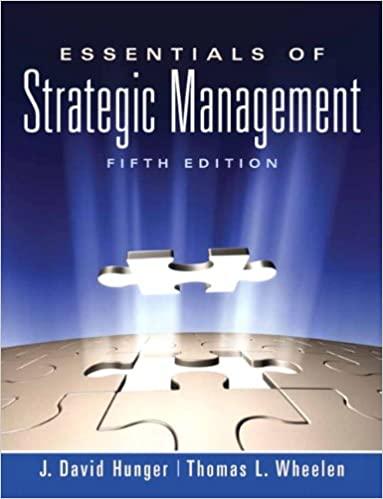Question
please help respond to this classmate's post in a way that adds value or extends the discussion further The Four R's of Effective Organizational Culture
please help respond to this classmate's post in a way that adds value or extends the discussion further
The Four R's of Effective Organizational Culture
Bhima Niroula
Department of Business: Franklin University
MGMT-440: Organization Culture & Performance
Dr. Marguerita Barta
August 31, 2023
The Four R's of Effective Organizational Culture
My last name is Niroula, begins with an "N." I'll talk about "Retention" in terms of a productive company culture. The ability of an organization to keep its employees over time is referred to as retention. Employee retention can be significantly impacted, both favorably and unfavorably, by an organization's culture. According to Tenney, "Employee retention affects an organization's performance, productivity, culture, profitability, and customer satisfaction in positive and negative ways", Tenney, (2020).
Positive Influence: Employee retention can benefit from a strong company culture that prioritizes the development, inclusivity, and well-being of all employees. Employees are more likely to remain in their positions for a long time if they feel appreciated, supported, and in line with the organization's values and mission. For instance, organizations like Microsoft have embraced a culture that promotes lifelong learning and offers chances for professional development. This strategy results in better employee retention rates and higher levels of employee satisfaction.
Negative Influence: High turnover rates can be caused by toxic corporate cultures marked by weak leadership, a lack of work-life balance, and a disrespect for employee feedback. Employees who feel stressed, burned out, or unheard of are more inclined to look for work elsewhere. The Wells Fargo crisis might serve as a case study for the book, as elaborate sales targets and corrupt business practices created a toxic workplace environment that resulted in both legal problems and employee unhappiness.
In conclusion, company culture has a significant impact on employee retention. Better retention rates can result from a culture that values employee development, work-life balance, and engagement, resulting in a more steady and knowledgeable staff. On the other hand, a toxic culture can drive away skilled employees, resulting in a high turnover rate and possibly harming the organization's performance and reputation. Organizations should make an investment in developing a culture that values and supports their employees if they want to increase retention.
https://businessleadershiptoday.com/how-employee-retention-affects-the-organization/Links to an external site.
Step by Step Solution
There are 3 Steps involved in it
Step: 1

Get Instant Access to Expert-Tailored Solutions
See step-by-step solutions with expert insights and AI powered tools for academic success
Step: 2

Step: 3

Ace Your Homework with AI
Get the answers you need in no time with our AI-driven, step-by-step assistance
Get Started


